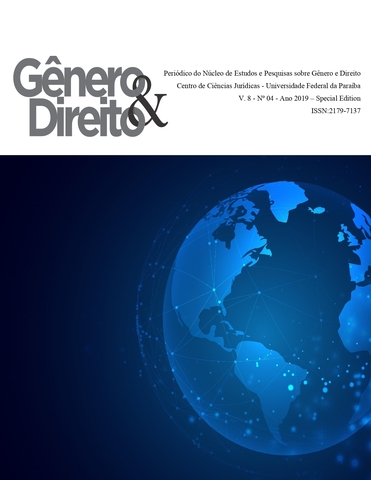ACTIVE PROCESSES IN USUAL AFFIXATION WORD FORMATION OF THE CONTEMPORARY RUSSIAN LANGUAGE
DOI:
https://doi.org/10.22478/ufpb.2179-7137.2019v8n4.48366Palavras-chave:
usual affixation word formation, patterns of usual affixation word formation, ways of usual affixation word formation, derivational neonominations, mass media languageResumo
The article is devoted to the study of usual affixation word formation as one of the most important operating mechanisms in the Russian derivation system. The goal of the research is to reveal active processes and main trends in usual affixation word formation of the contemporary Russian language.W. Humboldt’s work, where the language is considered not only as a product of human activity, but as the activity itself, as well as E.A. Zemskaya's ideas concerning active and creative nature of the Russian word formation as a subsystem of the general language system.The usual affixation word formation is an actively and dynamically developing aspect of the derivation system existing in the contemporary Russian language. News media language actively uses the resources inherent in the system and the norms of the Russian language: neologisms in newspaper texts are primarily generated through the usual derivation models. It has been revealed that the most productive affixation means of the usual innovations generation comprise the following: suffixation, prefixation, zero-suffixation and affixation-like word formation, wherein the most popular one is suffixation. At the present stage of the Russian language development we witness an increase in adaptive function of word formation types. Joining native Russian affixes to the borrowed stems appears to be one the most productive patterns in the contemporary usual affixation word building, where suffixation is the most demanding one. The research results obtained can contribute to the development of the lexical derivatology, lexical semantics, neology, and language stylistics problems. The promising character of elaborating the declared subject is conditioned by the language processes in mass media activation, which will probably require further study of neologization aspects in mass media texts in the nearest future, making possible to explore the functional and pragmatic potential in word formation resources of the contemporary Russian language.Downloads
Referências
V. Fatkhutdinova, “Word-formation family in derivation-semantic space of differently structured languages”, Journal of Language and Literature, vol. 6, № 3, is.1, pp. 76–80, 2015.
S. Ilyasova, “Denominative verbs as a result of motivation and pseudomotivation”, Philology and culture, 2016, № 4(46), pp. 44-49, 2016.
I. Erofeeva, “Nominalization in linguocultural paradigm of chronicles”, Life Science Journal, vol. 11, № 11, pp. 438–442, 2014.
T. Vendina, “Russian language world picture through the prism of word formation”. Moscow, 1998.
I. Evseeva, “Cognitive modeling of the Russian language word formation system”, Kemerovo, 2011.
E. Gorobets, R. Kulsharipova, M. Novak, “Speech disorders in patients withcognitive impairment caused by neurogenerative diseases: an overview”, Journal of Language and Literature, vol. 7, is.2, pp. 177–180, 2016.
M. Hashemi, “The impact(s) of teaching word-formation knowledge in increasing the nursing students’ reading comprehension skill”, Academic Research International, vol. 1, № 1, pp. 52-60, 2011.
D. Martyanov, E. Gorobets, M. Novak, “The category of aspect in the Russian language: teaching problems”, Modern Journal of Language Teaching Methods, SI, Nov, pp. 203–206, 2016.
V. Humboldt, “Selected works in linguistics”, Moscow, 1984.
E. Zemskaya, “Word formation as an activity”, Moscow, 2009

